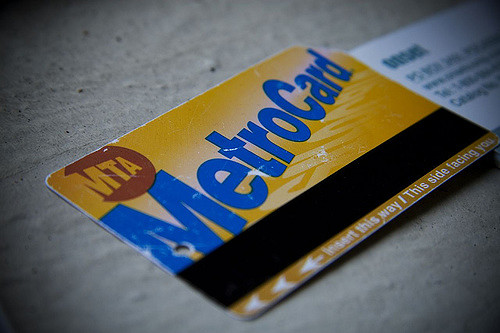There's a much fairer way to do "Fair Fares."
The MTA board will approve a half-priced transit fee scheme called "Fair Fares" on Thursday — but the reduced-price program will only apply to monthly and weekly Metrocards, meaning that thousands of eligible low-income New Yorkers may not benefit from the program.
Transit advocates say "Fair Fares" doesn't live up to its name — and are pushing the MTA to institute fare-capping, which allows pay-per-trip riders to qualify for a weekly or monthly pass once they reach the threshold cost. The MTA has yet to commit to implementing the practice, which has been rolled out in cities such as Portland and London.
"Fare-capping, with the new fare payment system, is important if the MTA wants Fair Fares to full succeed," said Jaqi Cohen of NYPIRG's Straphangers Campaign. "It assures that riders who can’t afford the upfront cost of unlimited rides are getting the best deal, and aren’t overpaying for the same number of trips that someone who can afford upfront [30- and seven-day] costs would be able to get."
For New Yorkers, fare-capping would mean that after 44 $2.75 subway rides, the MTA would not charge for any subsequent rides for the remainder of the month. Transit Center breaks down the concept in the video below:
It's not clear exactly why the city opted to exclude single-ride and pay-as-you-go fares from the $212-million "Fair Fares" Metrocard program, which will be available to New Yorkers with incomes below the federal poverty line. MTA officials yesterday said the current fare payment technology would have allowed for half-priced fares on both pay-as-you-go and time-based Metrocards, but that "other issues" led the city to limit the program to time-based tickets.
"We envisioned that the 'Fair Fares' discount would enable people to purchase any fare type at half-price," said Nancy Rankin of the Community Service Society, which fought for the program's creation. "People would be able to purchase the type of fare that makes the most sense to them based on their income and how many trips they take."
Functionally, seven- and 30-day Metrocards offer a discount on what riders would pay for each ride individually, but they're cost-prohibitive for many people, who can't put up the full cost in advance.
In 2016, the Community Service Society's "Unheard Third" poll of New Yorkers living below the federal poverty line found that 52 percent of low-income riders use single ride or pay-as-you-go tickets. Discounted fares would enable more riders to opt for monthly tickets -- but 22 percent said they would still not switch over.
“What we would really hope to see is to enable people to choose what kind of fare makes most sense for them, and get it at half-price," Rankin said. "The question for the MTA and the city is, is that technically feasible? With the new fare payment system, it should be."
For its part, the city said the program is subject to change.
"The seven- and 30-day options save money, provide flexibility for Fair Fares riders, and they allow us to get the program up and running faster than usual," said de Blasio administration spokesperson Jaclyn Rothenberg. "As we roll out the program, we’ll examine how the cards are being used and if changes make sense, we’ll make them."






